Adapt and survive
climate adaptation strategy
We’re passionate about helping businesses and organisations reduce their environmental footprint and promote real sustainability. The world is rapidly changing and companies are increasingly being held accountable for their environmental impacts. Customers and other business partners expect to see evidence that this is being tackled seriously.
By incorporating a proactive approach to climate adaptation into your overall business strategy, you can avoid potential damage and costs associated with climate change and instead turn these risks into opportunities for growth and innovation.
Your customised adaptation plan helps minimise your environmental impacts while strengthening your resilience to the effects of climate change. It involves the following steps:
– assessing and quantifying your greenhouse gas emissions and wider environmental impacts
– identifying the specific impacts that climate change may have on your business
– assessing and understanding the risks posed by climate change and developing strategies to minimise those risks
– identifying potential adaptation and impact reduction solutions that align with your overall business goals, ensuring that your adaptation strategy is both effective and sustainable
– preparing an Environmental Policy Statement to communicate your adoption of responsible practices to your various stakeholders and business partners
– reviewing your marketing claims and communication against greenwashing standards
– providing training and support to your team to ensure they understand the threats of climate change and the importance of adaptation, and are equipped to implement the strategies you develop. This will help ensure that your adaptation plan is not just a one-time effort but is instead integrated into your ongoing operations and management processes.
causes and effects of climate change
Climate change is a result of global warming of the atmosphere and the oceans. This extra heat adds energy which causes instability and more intense weather activity – hotter, wetter, stronger winds, more droughts and more floods. Global warming is caused by greenhouse gases – mostly methane and carbon dioxide – pumped out from human activities such as agriculture, manufacturing, transport and power generation. At the same time, changes in land use from natural landscapes to cities, road networks and industrial scale farms – coupled with over-exploitation of marine resources – reduce our ability to absorb carbon naturally and cause a catastrophic loss in biodiversity, potentially triggering in turn a collapse of the global ecosystem. Land use change and intensive farming practices exacerbate climate change and vice versa in a vicious positive feedback loop.
The solution is to drastically cut our emissions while simultaneously halting and reversing the loss of wild spaces and wild species. The dilemma is that much of our impact takes place out of sight in far away countries where goods are manufactured, plantations grown and freight shipped. And most likely our lifestyles have to change radically away from unconstrained consumption.
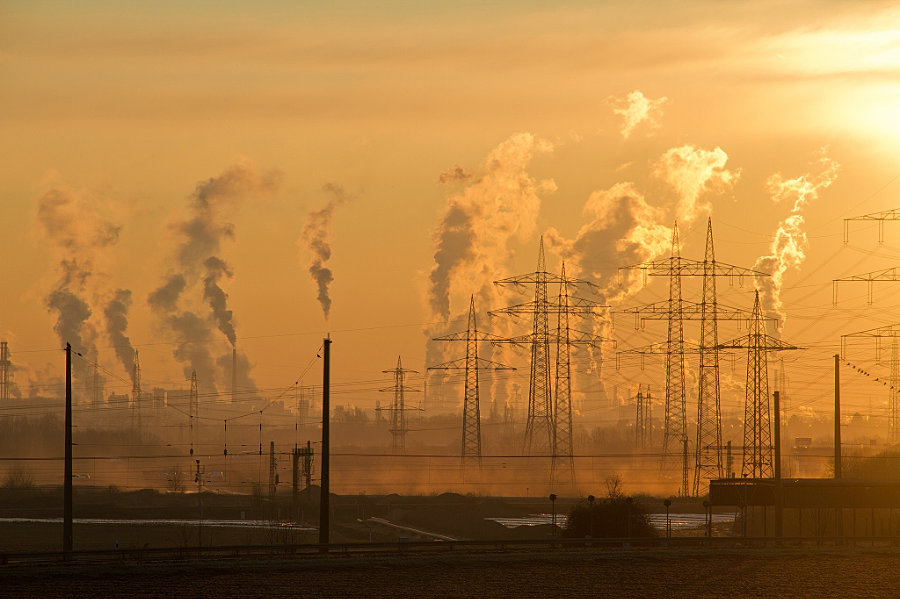
Fossil fuels
Power generation from fossil fuels is the world's biggest source of greenhouse gas emissions.
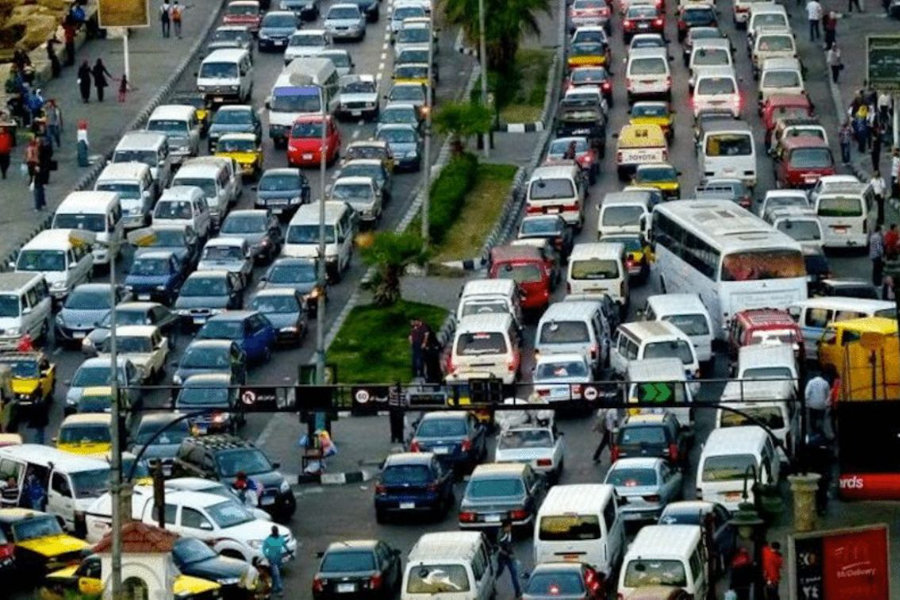
Transport and traffic
Diesel and petrol engines cause air pollution and social disruption as well as global warming.
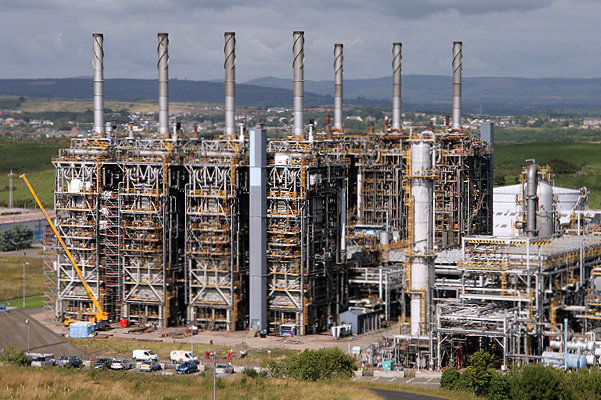
Manufacturing
Industrial and chemical processing plants not only create their own emissions but manufacture products which may end up polluting the environment.
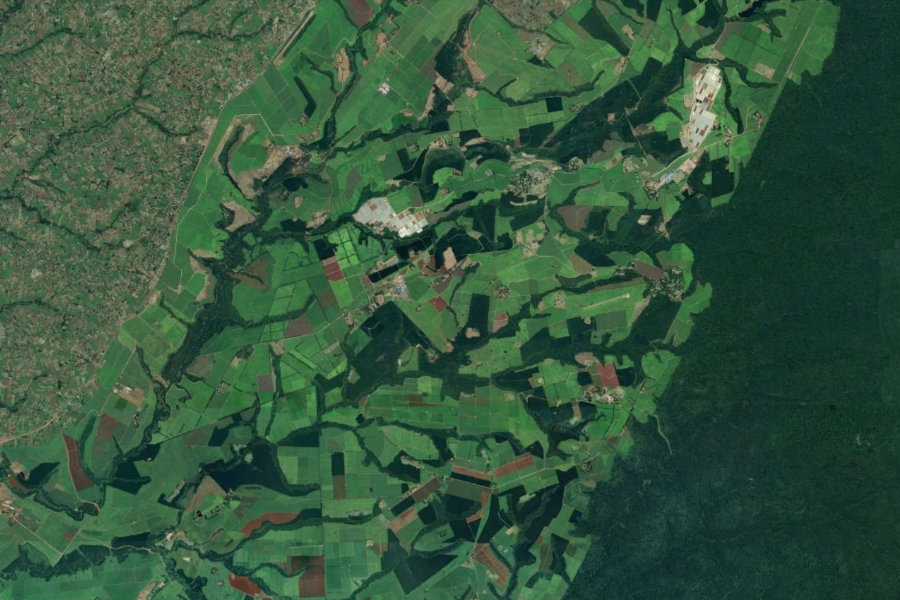
Deforestation
Your cup of tea comes from an estate carved out of indigenous rain forest, this one showing smallholdings and commerical plantations in western Kenya where once grew trees.

Industrial scale agriculture
The destruction of tropical forests to grow crops such as soy, and to rear livestock, is a major cause of biodiversity loss. It disrupts weather patterns and generates conflict with local populations.
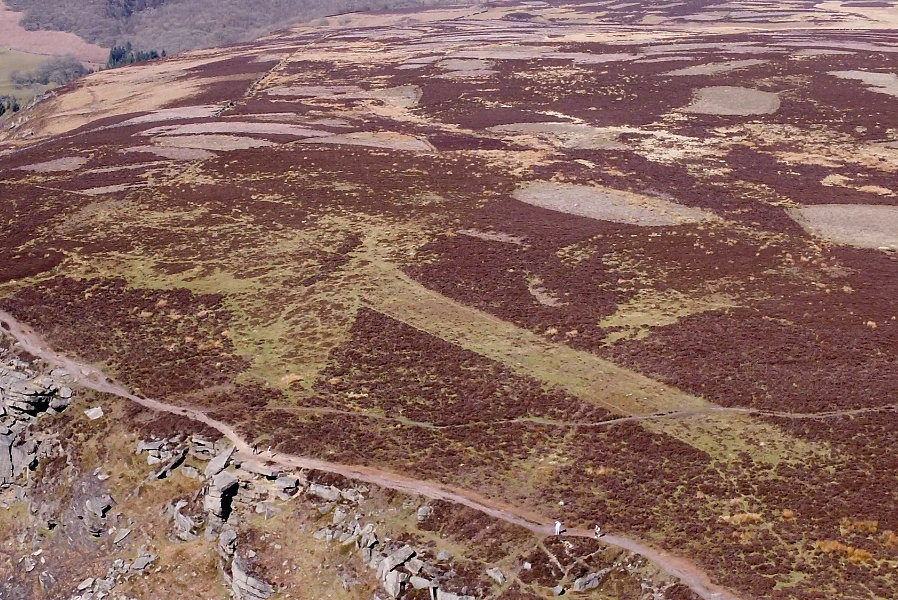
Land use change
This scarred moorland was once peat bog, a major carbon sink. The cover of heather and bracken – and regular burning – is a modern management technique to support the grouse shooting fraternity.
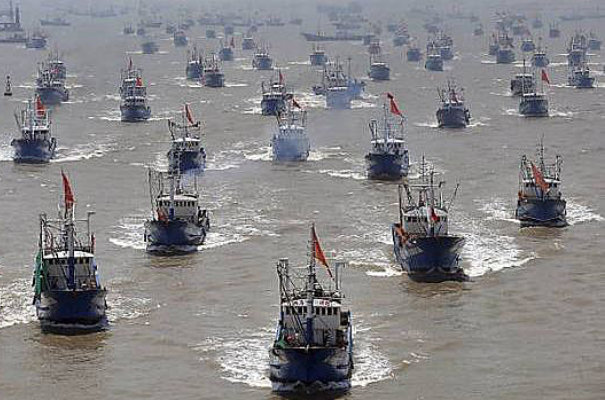
Dredging the oceans
Vast fishing fleets are denuding our oceans of marine life. As much is wasted as 'by-catch' as is sent to market. This harvest of natural resources does not appear on anyone's balance sheets. Nature is considered to be 'free'.
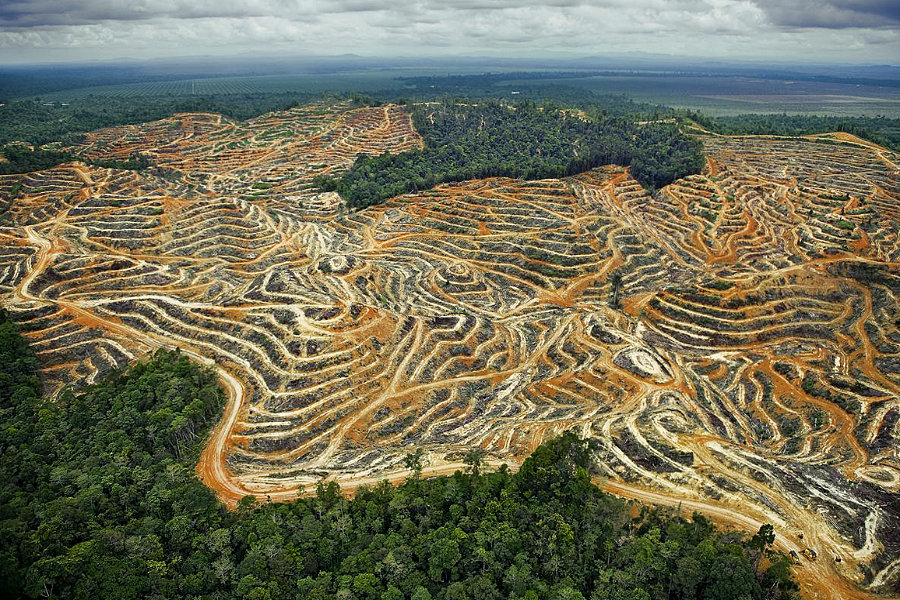
Mono-crop plantations
The destruction of rain forest to plant oil palms is one of the greatest threats. You'll find palm oil in many kinds of foods and cosmetics, often labelled as something else.
If you're not scared,
you're not paying attention!
LEARN MORE IN OUR ONE-DAY SEMINARS.
Please get in touch to discuss how we can support your own journey to impact reduction.
